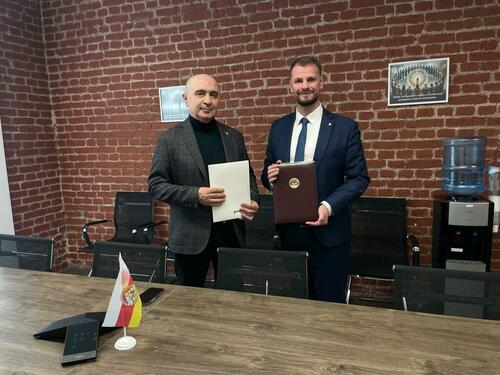The European Court of Human Rights (ECHR) declared unfounded the accusations of Georgia against Russia in connection with the events of August 2008 in South Ossetia, the press service of the Ministry of Justice of the Russian Federation reported.
It is noted that on January 21 the decision of the ECHR Grand Chamber on the interstate complaint "Georgia v Russia (II)" was published, the subject of which is the events of August 2008 in South Ossetia and their consequences.
"Based on the results of almost 12 years of consideration of the case, the ECHR concluded that the Russian Federation cannot be held accountable under the Convention for the Protection of Human Rights and Fundamental Freedoms for incidents that occurred during the repulsion of the Georgian army's attack on the peacekeeping contingent and the local civilian population by Russian military personnel. in the period from 8 to 12 August 2008. Also, the ECHR did not support the statements of the Georgian authorities about the alleged invasion of the Armed Forces of the Russian Federation into the territory of South Ossetia on August 7, 2008, that is, before the attack of the Georgian military on the city of Tskhinval, "the message says.
According to the Deputy Minister of Justice of the Russian Federation Mikhail Galperin, the Georgian side in this case "tried unsuccessfully to prove that the European Convention on the Protection of Human Rights is applied not only in peacetime, but also in conditions of hostilities, which actually undermines the foundations of international humanitarian law."
“We managed to convince European judges that the legal assessment of the actions of the Russian armed forces in South Ossetia and Abkhazia on August 8-12, 2008 is outside their jurisdiction. Also, the ECHR has not established a single case of violation of civilian rights by Russian servicemen during the August events 2008 ", - the press service quotes Halperin.
In addition, it is indicated that arguments about the groundlessness of Georgia's relevant claims and exhaustive evidence were presented by the Russian Ministry of Justice to the ECHR in the course of an exchange of legal positions. At the same time, the Ministry of Justice does not agree with a number of conclusions of the ECHR, including on the issue of blaming the Russian side for the incidents that took place on the territory of South Ossetia and Abkhazia after August 12, 2008, despite the fact that the direct involvement of Russian military personnel in them was never installed.
Such an assessment of the circumstances of the Russian Federation's participation in protecting civilians and preventing the escalation of an armed conflict was a consequence of the use of the concept of extraterritorial jurisdiction by the ECHR, the content of which is at variance with the position of the International Court of Justice and generally recognized norms of international law.
The ECHR judgment in the Georgia v. Russia (II) case does not contain a decision on monetary compensation. The relevant issue was left by the court in Strasbourg for further consideration.
Georgia on the night of August 8, 2008 fired at South Ossetia from Grad multiple rocket launchers, Georgian troops attacked the republic and destroyed part of its capital, Tskhinvali. Russia, defending the inhabitants of South Ossetia, many of whom had adopted Russian citizenship, sent troops into the republic and, after five days of hostilities, ousted the Georgian military from the region. Moscow on August 26, 2008 recognized the sovereignty of Abkhazia and South Ossetia. The leaders of Russia have repeatedly stated that the recognition of the independence of the two republics reflects the existing realities and is not subject to revision. Tbilisi refuses to recognize the independence of the republics.







